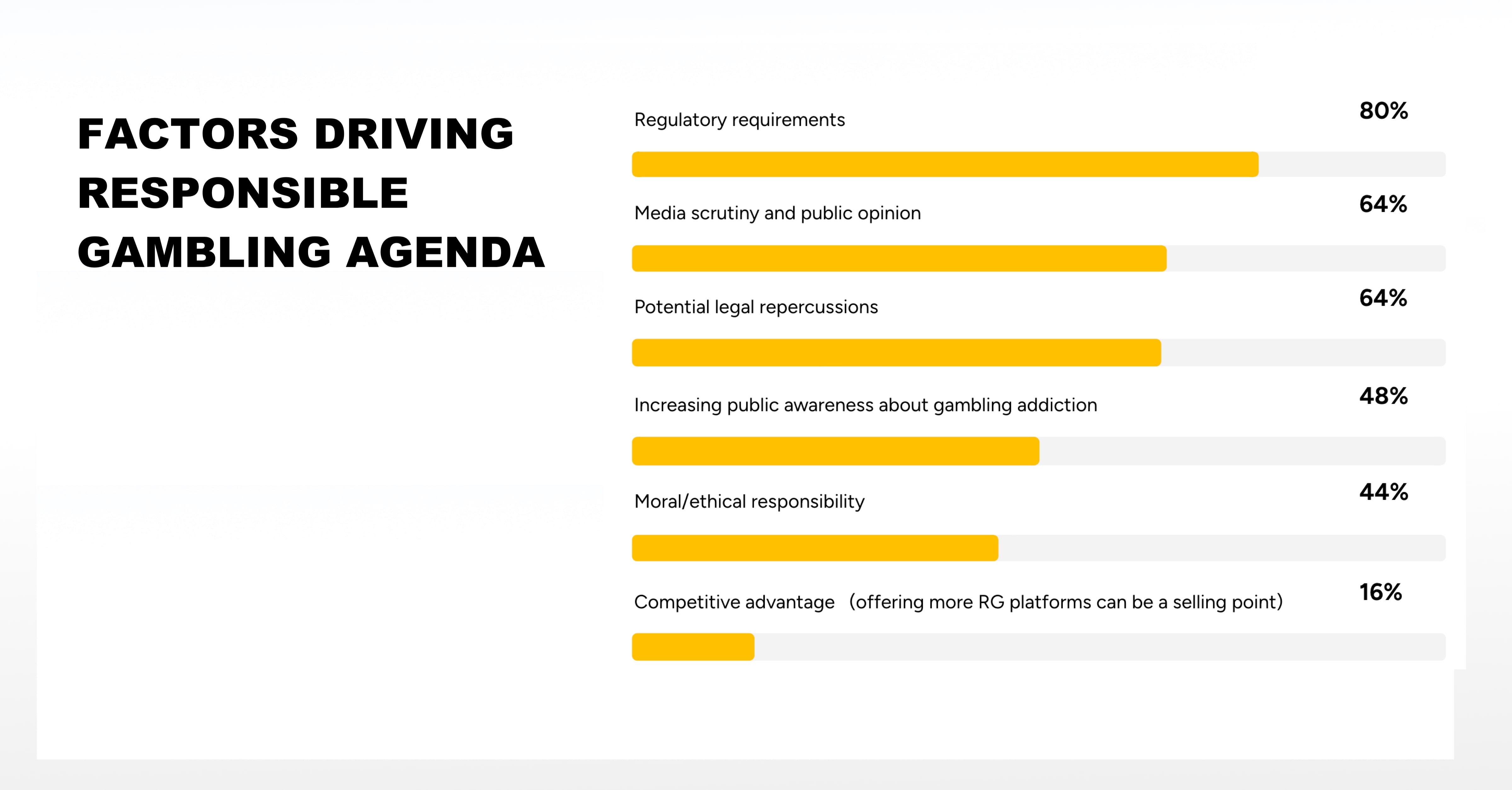The Responsible Gambling (RG) narrative continues to take centre stage within the iGaming sector in 2024.
Its expanding influence now permeates all operational niches, from player engagement to marketing strategies, underscoring the industry's shift towards ensuring player safety and overall wellbeing. This commitment to responsible gaming is reinforcing the industry’s reputation as one that values ethical conduct.
A split opinion emerges from Softswiss' community survey: 44% of respondents believe responsible gambling will positively reshape the industry, whereas an identical percentage view it as a non-influential factor. This polarised perception underscores the ongoing debate over its role in the industry. An average importance rating of 7.2 out of 10, however, indicates a serious acknowledgment of the upcoming transformations associated with responsible gambling.
Responsible gambling demographics: Softswiss Insights (Data source: Softswiss' iGaming Trends 2024 Report)
Softswiss figures provide a glimpse into the age and gender traits of individuals who might be at a heightened risk for gambling problems.
Reviewing the period between January and October 2023, a clear pattern surfaces: middle-aged adults are the most frequent participants in self-exclusion programs. This is likely reflective of their higher engagement in betting activities coupled with a better understanding of self-exclusion as a tool for responsible behaviour. Younger and older age groups show less involvement in such measures.
Gender distribution
Regarding gender distribution, it aligns with broader gambling trends, with men constituting the majority of those engaged in exclusions and self-exclusions.

External factors driving the responsible gambling agenda
Respondents of the Softswiss survey also answered a question about the external factors that might be influencing the surge in responsible gambling practices. Understanding these factors is crucial for stakeholders to navigate the evolving landscape and to align with both user expectations and regulatory demands.

Our survey reveals a strong consensus that regulatory demands are the leading force in the push for responsible gambling, with 80% of industry professionals acknowledging this. However, the influence of public opinion and the looming shadow of legal action are also significant, sharing second place as motivators.
Advancements in ethical marketing and regulation
A prime example of the industry's commitment to responsible gambling is the ethical marketing push. The UK's Betting and Gaming Council (BGC) is partnering with social media platforms to protect vulnerable groups from gambling ads. This is in tandem with regulatory developments in France and Colombia, where new laws and proposals are setting stringent standards for gambling advertising and marketing practices.
Not far behind is the growing public awareness of gambling addiction and the ethical obligations of the industry.
Interestingly, 16% of respondents view responsible gambling as a competitive advantage. There is a growing recognition that platforms demonstrating a strong commitment to responsible gambling are likely to distinguish themselves in a crowded market. Operators are beginning to see responsible gambling not just as a regulatory necessity but as a value proposition that can enhance player loyalty and brand strength.
The imperative for brand investment in responsible gambling
Why should brands prioritise responsible gaming? The rationale extends beyond compliance; there is an intrinsic value in fostering a responsible gambling space that protects consumers, which in turn solidifies brand trust and reputation.
MGA's enhanced player protection framework
Significant within the sphere of responsible gaming is the Maltese regulator's amendments to its Player Protection Directive, introduced on 12 January 2023. One pivotal change is the requirement for licensees to monitor ‘markers of harm’ by analysing player activity for signs of problem gambling. In line with these changes, the Softswiss team has refined its player monitoring tools, integrating machine learning to develop the Responsible Gambling Rescoring tool, which assesses the risk profiles of individual players.
Tools for implementing responsible gambling
Which of the following responsible gambling measures is your organisation considering implementing or has already implemented?
As our final graph shows, Operators have a plethora of tools to embed responsible gambling practices into their businesses. Our survey identifies the most embraced strategies, including time limits and self-exclusion frameworks, among others.



































